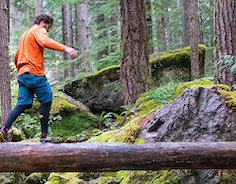 Spinning a new consulting firm out of older, bigger, ones is a common story—no different from the founding of a new religious sect in a schism with the past. A charismatic leader and a few faithful followers declare a new revelation and start preaching from a new street corner.
Spinning a new consulting firm out of older, bigger, ones is a common story—no different from the founding of a new religious sect in a schism with the past. A charismatic leader and a few faithful followers declare a new revelation and start preaching from a new street corner.
When we started Diamond we all had experience in large professional service firms. We were driven by things we didn’t like and wanted to fix and by opportunities we saw being ignored. We were less aware of the unique issues connected with being small and vulnerable.
Coming from big firms, we knew that training and knowledge management were important capabilities. As the only person who seemed marginally qualified, I was handed both problems and the hats of Chief Knowledge Officer and Chief Learning Officer. I had no staff and only the promise of a budget.
We lumped these two functions out of the reality of limited resources. In the organizations we had come from and knew, these functions were distinct. They demanded lots of resources and had grown from different origins and histories.
The decision rooted in our constraints generated insights that have become more relevant over the past twenty plus years. I want to start with the individual consultant—one of the prototypical knowledge workers that drive today’s organizations.
Alvin Toffler predicted that successful knowledge workers would be those who could “learn, unlearn, and relearn.” We live in the world he predicted. What we need to know as knowledge workers continues to grow at the same time that the half-life of our knowledge base continues to shrink.
The reality of this environment means that as a knowledge worker, you can’t count on organizations to be responsive enough to support your learning needs. They face the same problem you do and their problem is magnified by issues of scale.
Conventional strategies for learning break down. You can’t keep going back to school. You can’t afford the time and schools are as slow or slower to adapt their curricula to morphing demands as the organizations you inhabit.
Old avenues for learning in smaller, more up-to-date, chunks still exist and new avenues are appearing. If anything, the proliferation of options—YouTube, Udemy, EdX, Coursera, Khan Academy, workshops, seminars, webinars, ebooks—threatens overload more than relief.
What’s a reasonable path forward? I think it includes an explicit and dynamic personal learning plan coupled with a coherent set of supporting learning processes and practices. A learning plan should build on understanding how learning works, a view of your base of knowledge, and expectations of what skills and knowledge need developing.
Learning processes and practices provide the scaffolding and support structures that would otherwise be provided by the formal schooling environments that aren’t available. They will likely include:
- reflective practice
- cohort of co-learners
- journals/journaling practice
- reference management system
- systematic note taking and management
What you might correctly infer from this is that I am actively engaged in updating and formalizing my own plans and practices. I’m curious who else finds this a journey they might like to join?